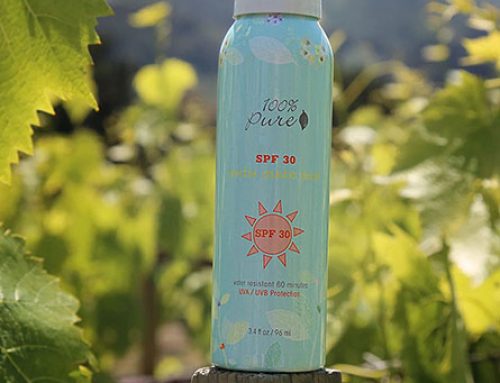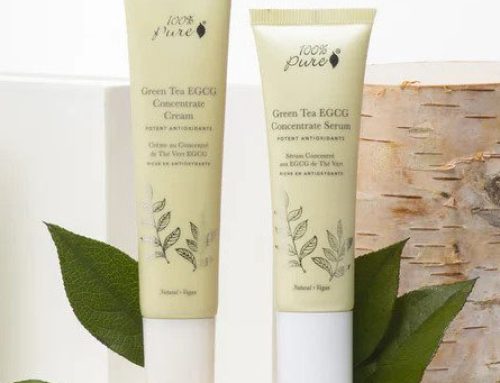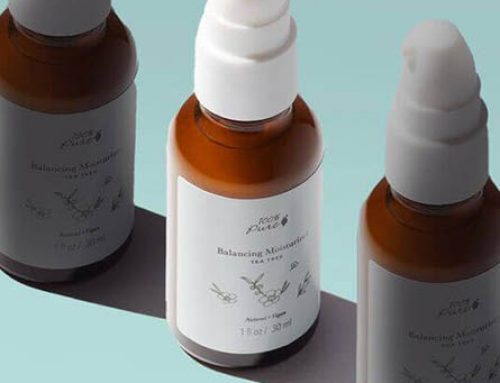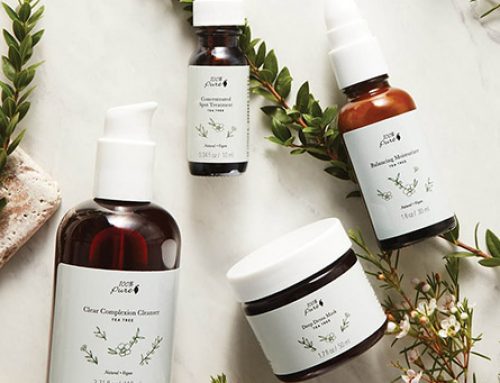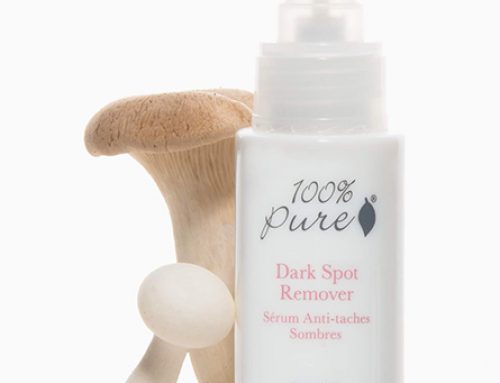What is Retinol, and How to Correctly Use Retinol for Skin for a Youthful Glow
The vegetable superstars that make our retinol cruelty free and vegan, and the retinol products to find them in.

What is Retinol?
Retinol is a preformed Vitamin A found in animal-derived ingredients. Conventional cosmetics usually contain retinol esters called retinyl palmitate and tretinoin. Your body converts these into an active form – retinoic acid – that can then be used by your skin cells. Animal derived retinol and Vitamin A derivatives are called retinoids. On the other hand, vegetarians will be looking for carotenoids – the plant-derived sources of retinol – to get their fix of retinol for skin.

The New Retinol in Our Retinol Products
Most retinoic acid is derived from the enzymes in milk or egg, and are generally perceived to be more potent for treating skin care issues. Instead we choose to use naturally occurring, high-fat vegetable and seed oils to help activate our carrot seed retinol: avocado and sunflower oils contain their own enzymes to help make them more digestible, and are non-comedogenic for your pores. Those same enzymes help to create the effects of vitamin A in our plant-based retinol balm; the rest occurs when the balm is applied to the skin. *Vegans will be glad to know that all of our new products will be formulated vegan– but our retinol balm is one of the last to make the cut as vegetarian, not vegan, due to our addition of skin-softening beeswax.*
Benefits of Retinol for Skin
We love retinol for skin because it supplements the human body with something it cannot produce completely on its own. Though many will argue that animal-derived retinols are more potent, we stand by the value in creating alternatives that are just as effective. The carotenoids we’ve sourced from carrot seed oil are harvested from the gorgeous flowering tops of wild carrots, commonly known as Queen Anne’s Lace. I featured these beautifully lacey plants in my wedding bouquets, totally unaware of the hidden gems hiding inside of their buds! Carrot seeds aren’t actually seeds by the standard botanical definition. They’re more similar to tiny, shriveled fruits of the flowering plant that grows above ground, while the carrot grows beneath the soil.
While many choose to supplement vitamin A into their diet with dairy, meat, fish, fish oil or vitamins, there are also many wonderful vegetarian sources. Dark green leafy vegetables and yellow or orange fruits and vegetables are the best sources of beta-carotene, which converts to vitamin A inside of our bodies. This source of retinol as vitamin A is extremely beneficial for healthy mucus membranes and our immune system, which is super helpful in the fight against colds and viruses. And as most of you know, beta-carotene is a must for maintaining healthy vision and eye health.
Beta-carotene is not only a carotenoid, but an antioxidant too! It helps to neutralize free radicals within our body and will do the same for our largest organ: our skin. Free radicals are byproducts of chemical substances and pollution that can wreak havoc on our cells, which in turn affect our internal and external health. Free radicals have been thoroughly linked to cancer, Alzheimer’s disease, Parkinson’s disease, lowered immunity and heightened signs of aging. In short: supplementing beta-carotene into your diet can show loads of both long and short term internal health benefits.
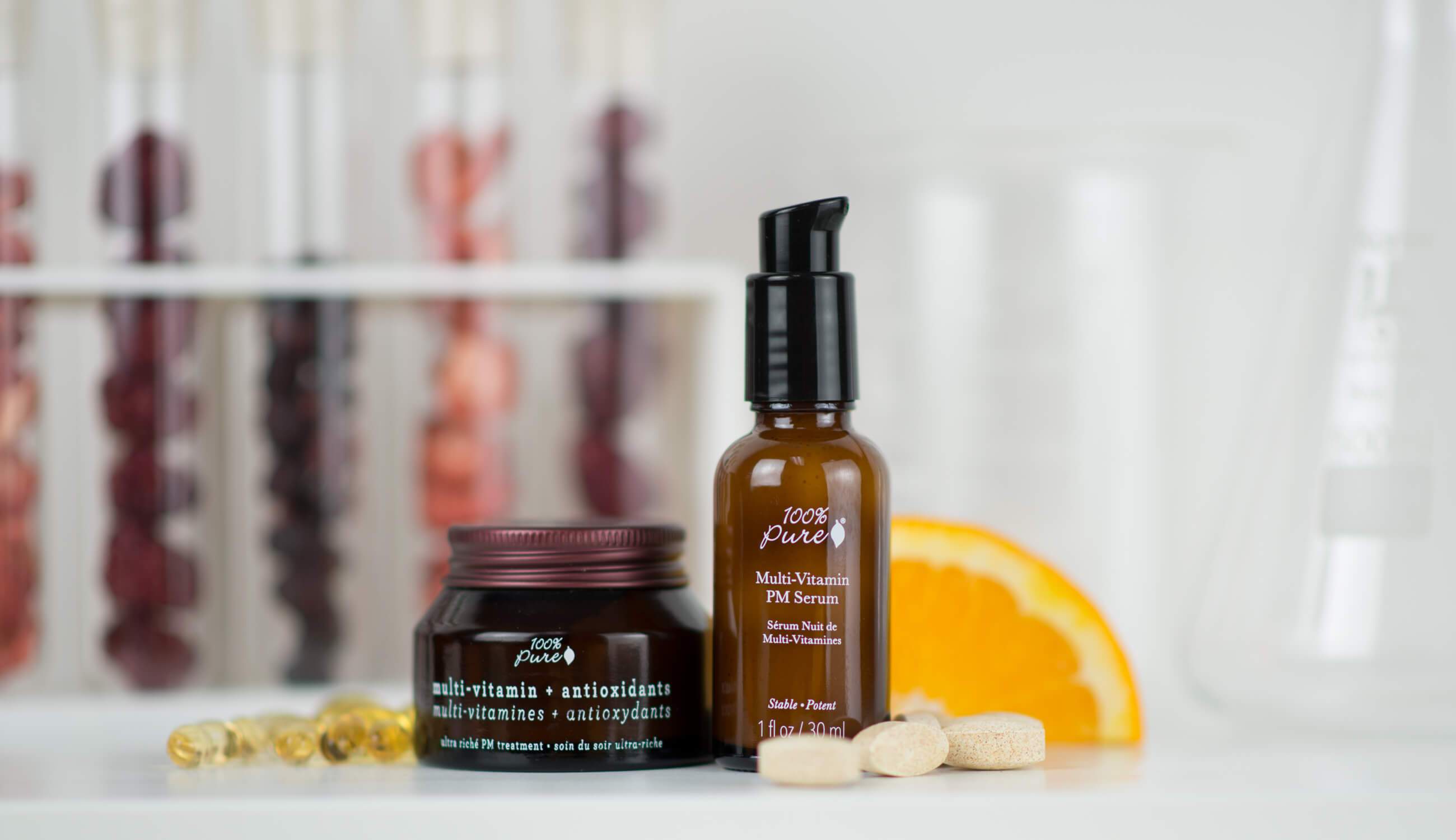
How to Use Retinol for Skin
When applied topically, retinol has tons of impressive anti-aging benefits. If used early, it helps to increase skin’s elasticity and boost collagen production. This encourages skin’s foundation of suppleness so as we age, we’ve already worked to develop a defense against fine lines and wrinkles, making it harder for them to form. For mature skin, retinol can help increase collagen and stimulate cell turnover to slough dead skin layers that often lead to fine lines and dry skin. With repeated use, retinol can also diminish dark spots and improve skin texture.
As with any great and powerful beauty accessory, there are some important do’s and don’ts that come with the territory. Both retinoids and carotenoids degrade in sunlight, so our biggest reminder is to only apply retinol products at night. Hence our bedtime friendly products– our Retinol Restorative Neck Cream, Multi-Vitamin + Antioxidants Ultra Riche PM Treatment and Retinol Restorative Overnight Balm all stipulate that they should be used in the evening.
Not only will retinol for skin work its most potent magic while you sleep, but it will also be at its safest. When exposed to sunlight, retinol will break down, resulting in increased sensitivity and vulnerability in skin due to a weakening of the skin’s top-most layer. This degradation from sun can have mild to extreme adverse reactions, ranging from mild skin irritation to lesions and increased risk of melanoma. Even certain types of artificial light emit small amounts of UV rays and can increase the potential for adverse reactions, so if using retinol at night you should avoid direct exposure to fluorescent or halogen light sources. No matter what light source you’re around, just remember the cardinal rule: retinol works right at night!
Retinol Products to Add to Your Skincare Routine
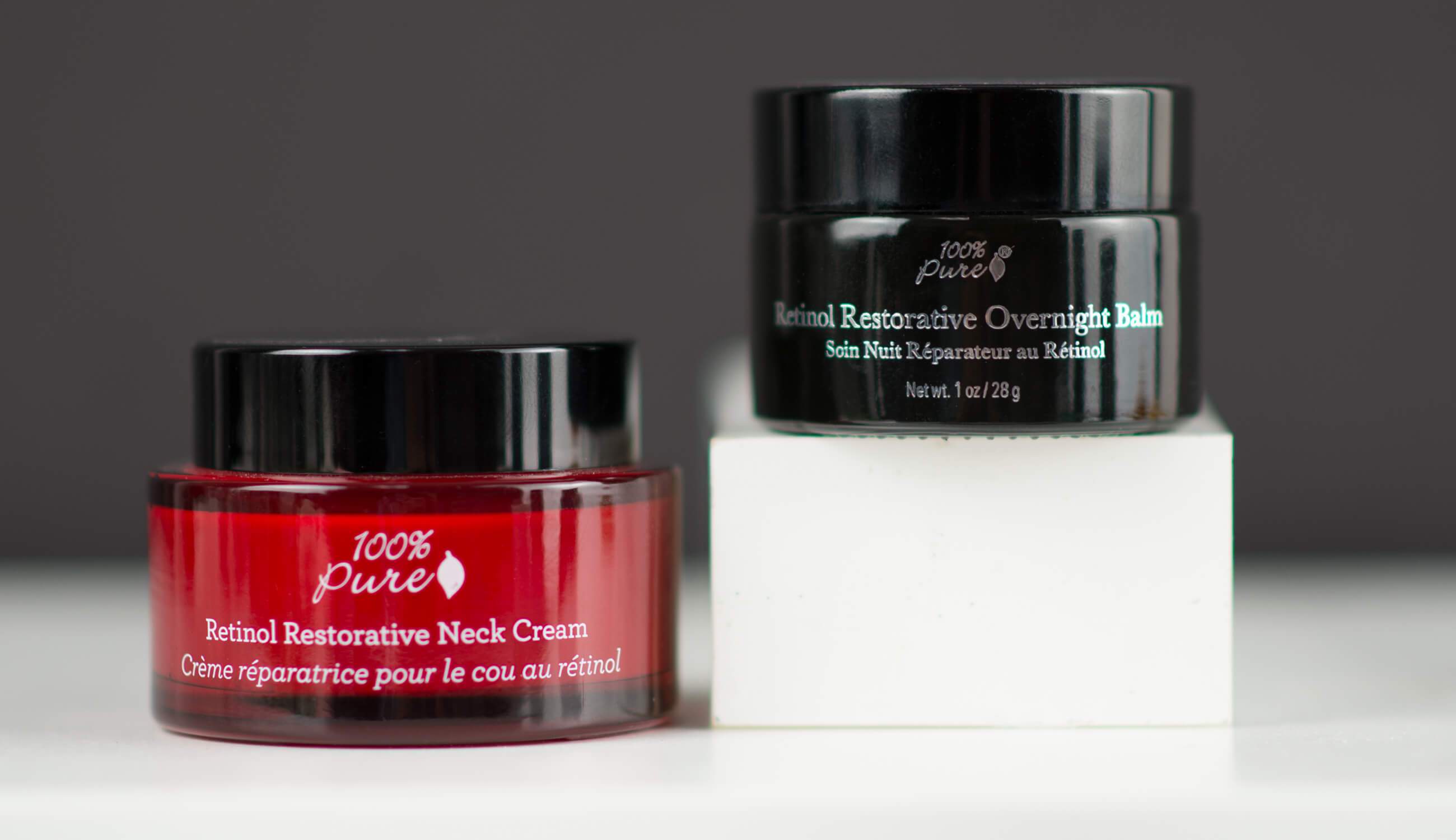
The Nighttime Multi-Tasker
Our beloved Multi-Vitamin + Antioxidants Ultra Riche PM Treatment isn’t solely a retinol product, but it’s packed with nutrients and vitamins, including the retinol-rich vitamin A. This ultra decadent, super luxurious cream is to be used at night, given the potency of Vitamins A and C. Avocado, sea buckthorn and other deliciously rich oils will have you waking to supple, velvet-kissed skin come morning. Our multi-vitamin retinol cream is wonderful for all skin types – including sensitive skin – especially those wishing to increase elasticity, suppleness, and decrease fine lines.
Don’t Forget the Neck Too!
Our Retinol Restorative Neck Cream is the unsung hero of our retinol lineup, as it works hard through the night to enliven a spot oft forgotten during most skin care regimens. The neck, like the eye area, is made up of some of the most delicate skin on our body, which means it’s especially prone to signs of aging from sun damage, wrinkling and environmental exposure. With a healthy dose applied to fingertips then gently massaged into the neck and decollete before bedtime, our overnight neck cream will help to reduce telltale signs of aging in one of the most delicate and visible areas of the skin.
Retinol Restorative Overnight Balm
For the full retinol treatment, apply our skin softening balm. Luxurious avocado and shea butters nourish skin while you sleep, while soft scents of jasmine lull you into the realms of dreamland. Sunflower and olive oils moisturize skin so you’ll wake up to softer, more supple skin, aided by the Vitamin A in carotenoids from carrot seeds that enhance firmness and diminish fine lines. It might just be our most luxurious, vegetarian balm yet, and was carefully formulated to restore skin’s radiance and elasticity.

Retinol PM Eye Cream
Finally, the newest addition to our retinol arsenal is our Retinol PM Eye Cream. Retinol for skin around your eyes is especially important because the skin around your eye area is more thin and vulnerable to damage. Vitamin A derived from carrot seeds is just what you need to smoothen those crows feet and eye crinkles for a more youthful smile. We’ve included skin plumping hyaluronic acid to lock in hydration and other potent ingredients as you sleep. Have we mentioned that this retinol eye cream is vegan too?
Next Day Regimen After Using Retinol for Skin
Your next-day regimen after using retinol is just as important — and it’s something you should already be doing! First, a best practice is to cleanse or rinse in the AM to ensure you have no leftover retinol that will degrade when you step into the light. Then, to really help any leftover carotenoids be properly swept away, apply an SPF to any areas where retinol was applied the night before. Applying a natural sunscreen is a daily must for proper skin care, but is especially helpful to fortify skin after a retinol treatment.
If you’re looking to supplement retinol into your skincare routine, we have something for all areas of concern. As with any retinol product, it’s important to stick with regular application for 10-12 weeks to see the effects — some may see results after only a few weeks. And while retinol for skin must be used properly and with the recommended precautions, we believe that the benefits far outweigh the care and rules required to use it.

